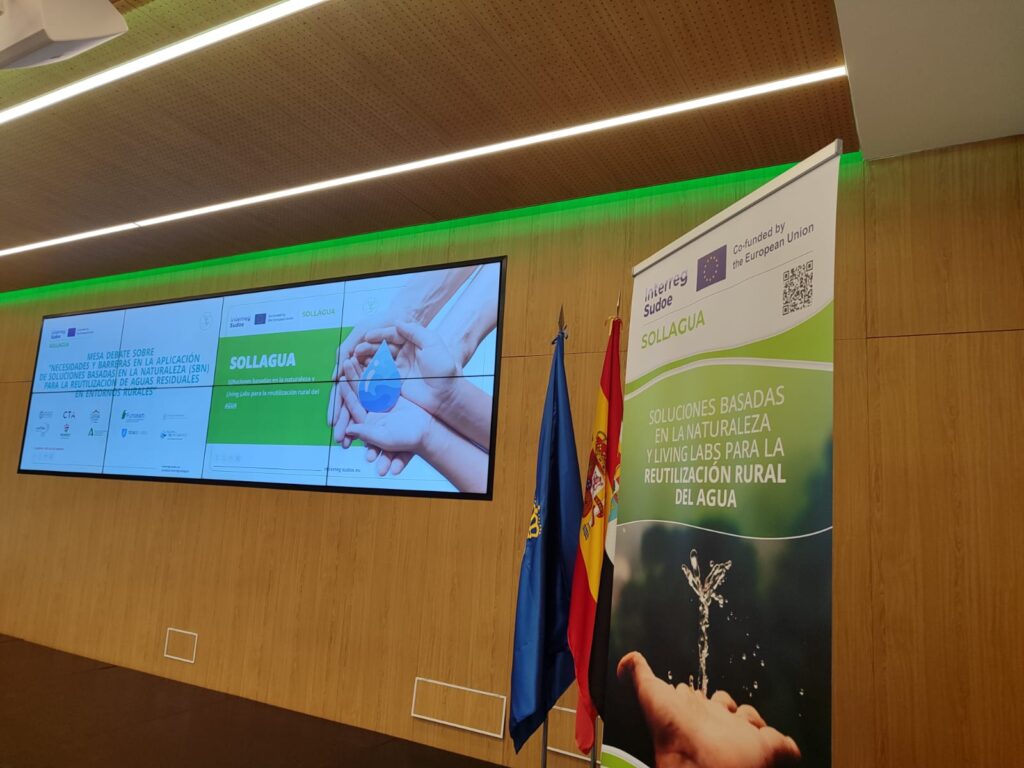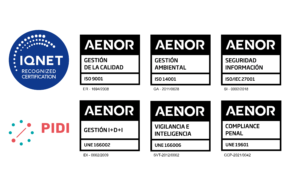This summer once again highlighted that water scarcity in southern Europe is an increasingly pressing problem, caused by a combination of factors such as climate change, overexploitation of water resources, and growing demand in sectors such as agriculture, tourism, and industry.
With this problem as a starting point, the Spanish partners of the European SOLLAGUA project held last Wednesday a round table discussion entitled ‘Needs and barriers in the application of nature-based solutions for the reuse of wastewater in rural environments’ at the headquarters of the beneficiary PROMEDIO (Badajoz), an entity dedicated to the supra-municipal management of environmental services in the province of Extremadura.
The event, which was moderated by Pedro Martín de la Vega, head of R&D&I of the Extremadura consortium, took place from 9:00 am to 1:30 pm and was attended by around fifty groups involved in the treatment, management and use of the liquid element, especially precious in those Spanish areas most exposed to high temperatures and long periods of water stress, as is the case of Andalusia.
Thinking globally; acting regionally
The need for alternative water sources to traditional ones was one of the central points of this multidisciplinary session. In this sense, it was put on the table that, provided that regulations, environmental factors, costs, and the technical capacity of water management operators allow it, treated wastewater could be a suitable complement for certain uses. To this end, the common commitment was to promote nature-based solutions (NBS) that carry out this purification process with the minimum environmental impact, something that is not easy, as it requires overcoming socio-cultural, regulatory, economic, and technological barriers, among others.

And this is precisely the aim of SOLLAGUA. The SOLLAGUA initiative, co-financed by the Interreg SUDOE 2021-2027 regional development programme with 1,389,232.10 euros, has the fundamental objective of promoting nature-based solutions (NBS) for water reuse in rural areas of Spain, Portugal and France. It will run until the end of 2026 and is driven by a consortium of ten main entities and twenty-six partner entities. Carlos García Delgado, technical manager of the Building and Civil Works sector, and Manuel Silva, communication officer, were in charge of representing CTA, which in this project leads the communication and dissemination package and provides support in other technical tasks.



